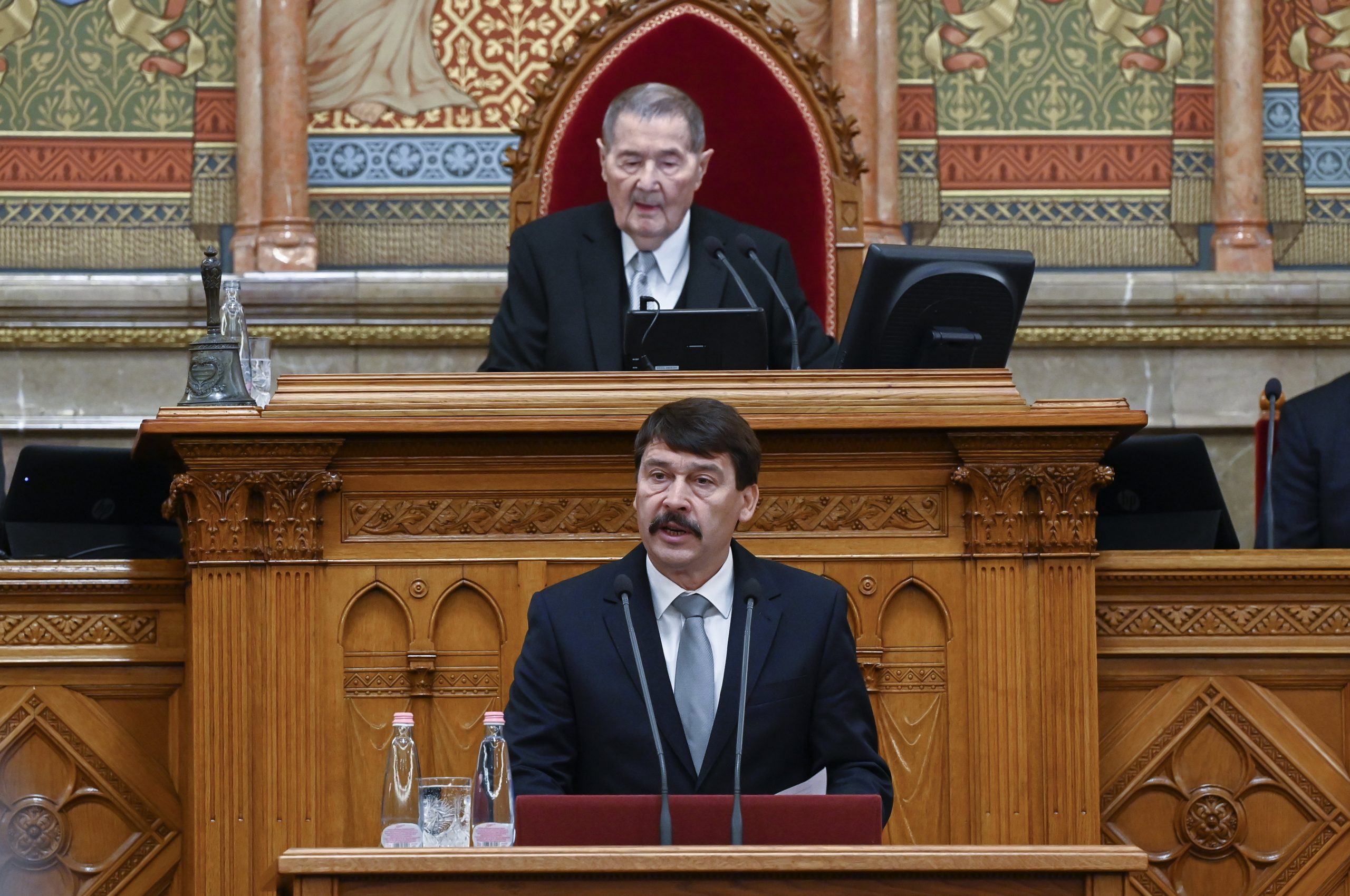
Áder warned Hungary was facing "difficult years to come."Continue reading

Politics can be Christian, but this is not the fashion of our time, the outgoing President of Hungary confesses. He favors debate and dialogue, but he believes that the quality of political discourse has deteriorated significantly since the fall of the Iron Curtain. Áder has actively worked to represent the national interest and Hungarian values over the last ten years. In other words, he believes he has fulfilled the commitments he made in 2012. He recently stood up for the controversial project at Lake Fertő because he believes it is not environmentally destructive, as many currently claim, but it much rather gives the lake greater value. János Áder was also asked what his plan is in the coming days, months, and years after he leaves the Sándor Palace.
The following is from an exclusive interview between János Áder and the Friends of Hungary Foundation on May 4, 2022
Ten years ago, in your speech immediately after being elected, you highlighted the issue of national unity. To what extent do you feel that you have personally succeeded in creating and strengthening such unity over the past 10 years?
That speech addressed many things, from representing national interests and values to recognizing achievements and respecting others. If I had to answer your question in one sentence, I would say this: I have stayed true to my commitment of May 2012 and I have fulfilled it to a large extent.
Three examples of this:
Engagement with Hungarians beyond the border.
At the Csíksomlyó Pilgrimage, a more than 400-year-long tradition, none of my predecessors took part as heads of state. Aside from the two years of COVID, my wife and I were always there: we went up the mountain together and came down together with the pilgrims. My presence was a clear message to the Hungarians who were attending both from Transylvania and many other parts of the world: it emphasized the importance of national unity.
Historical reconciliation.
There were, and are, historical traumas which have not healed since 1945. This is why I am also pleased that my first guest in 2012 was the then President of the Republic of Serbia, Tomislav Nikolic, with whom we agreed to commemorate in a fitting manner both the innocent Serb victims of the massacres committed by Hungarian secret police and soldiers in Újvidék (Novi Sad), and the innocent Hungarian victims murdered by Yugoslav partisans at the end of World War II. As part of the reconciliation, the Serbian Parliament repealed its earlier decision on the collective guilt of Hungarians, and in the Serbian Parliament I apologized on behalf of the Hungarian state for all that had happened in Újvidék (Novi Sad) in 1942.
Holocaust.
Throughout the year of remembrance, we commemorated the victims of the Holocaust in a dignified manner at various sites, including Auschwitz, Mauthausen, the Yad Vashem Memorial Centre and the Budapest Synagogue. In my speeches, I made it clear that the destruction of our Jewish compatriots was an irreplaceable loss for the Hungarian nation.
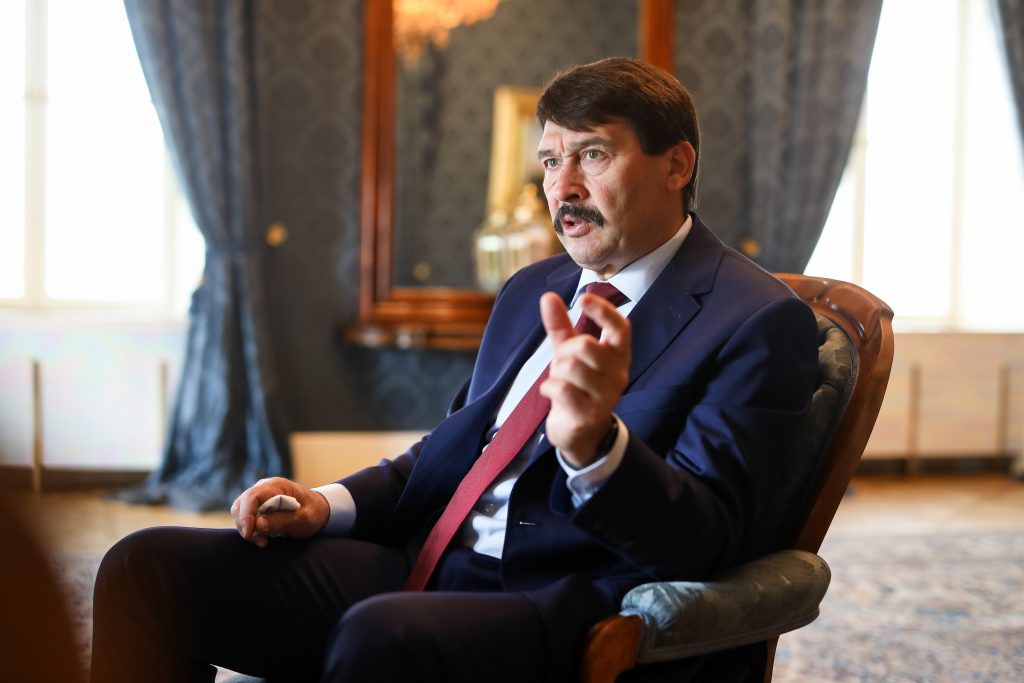
Both the importance of dialogue and constructive debate are things you stressed in your 2012 inauguration speech. More specifically, you spoke about how important it is to respect the other side in a debate. In Parliament, there is debate, but it often lacks respect. And when you were re-elected in 2017, you said the state of political discourse had deteriorated dramatically and that, because of political numerosity, greater responsibility remains with the governing parties. Does the President of the Republic bear responsibility in this?
When I was elected for the second time, the state of political discourse was a prominent part of my speech. By then, some of the speeches in Parliament were already characterized by a degree of such pretentiousness, coarseness and a low, dare I say pub-like parliamentary discourse which I could not ignore.
A good number of politicians bear a serious responsibility for the fact that the quality of public discourse has deteriorated considerably, not just in Parliament, but outside of it too. Every time I felt justified in doing so, I warned the participants of this. Unfortunately, my words have not had much traction. But on April 3 [Hungarian parliamentary elections], the electorate expressed its opinion on the issue.
Fact
Every year, President János Áder hosts hundreds of diaspora Hungarians at his residence, who come to Hungary for a few days (traditionally in early May) to report on their work for their Hungarian identity across the border. The Friends of Hungary Foundation, which publishes our news portals, organizes this world meeting, where the former president welcomes these Hungarians who have come from all over the world. In the most recent of such occasions, János Áder praised the work of the organization, saying, “The Foundation gathers all who believe in the decisive power of personal commitment, direct experience and recognized achievement.” The President also praised the Foundation’s members for their commitment to promoting a fair image that spreads Hungary’s true achievements around the world.
There are two important arenas for debate in public life: one is in the Parliament, which was mentioned earlier, and the other is in the media, where different views can be expressed. This phenomenon does not appear in public media. Could this not also be a source of the problem? Do you feel responsible for this?
I have no influence over what appears in the media. I cannot even impact how my own opinions are represented. Journalists have a lot of freedom in what they write and how they write it.
Many people abuse this freedom, or misinterpret it, believing that to describe the work of politicians, political bodies and public institutions is to insult, to make unfounded accusations and to produce ‘fake news’ rather than to inform the electorate properly, to broaden our knowledge, to explore correlations and make them known to the public.
You mentioned Csíksomlyó at the beginning of our conversation. Your deep Catholic faith cannot be separated from your identity. In September, you testified to this at the International Eucharistic Congress in Budapest. You said that if we seek God in our actions, we will most certainly find him. You have given your opinion on political communication in Hungary, which is why the following question is: if you have such a negative opinion of current political discourse, is it not difficult for you to find value in the path of a politician? Can politics be Christian?
There is nothing that prevents it, I would rather say that Christian politics is not the fashion of our time. When I became a Member of the European Parliament (János Áder was a Fidesz MEP from 2009-2012 – editor), I thought that I would see a better quality of debate there than in the Hungarian Parliament. But I was disappointed. The quality there is no better than at home. In fact! In recent years, a significant number of politicians in Western Europe and Hungary have become “media politicians”.
Many of them do not make statements in accordance with moral considerations, their own principles or even a political program, but rather seek to satisfy the considerations of the media, which can change on a daily basis. I think this is a complete misunderstanding of the political profession and a political career.
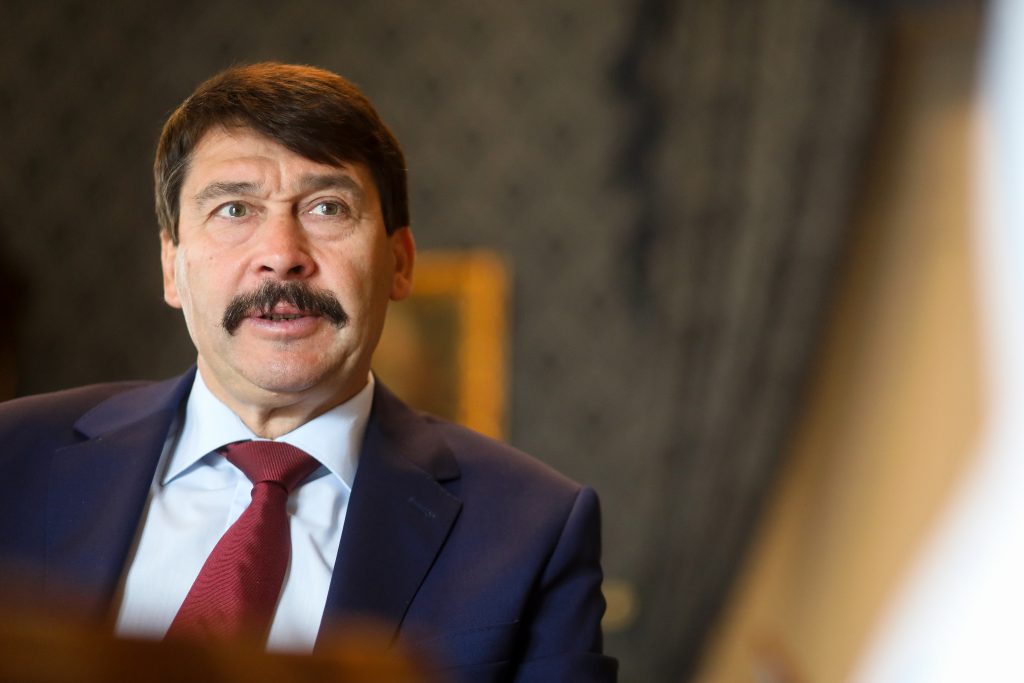
It was known practically from the first moment you took office that you would put the environment first. You set up the Blue Planet Foundation not long afterwards. What have you been able to achieve in recent years?
I began involving myself with the issue when I became a political group leader and later a Member of the European Parliament. After my election as President, I paid it even more attention. Perhaps this is because as you get older you begin to think a lot more frequently about the future of your children.
I have been fighting against the ‘throw away culture’ for years. Many people see the essence of economic activity not in value creation but in marketing. There are so many pointless products which should not even be made.
Within moments they become boring, out of fashion, scraps. They sit on our shelves, on our desks, in our wardrobes for a while, then eventually get thrown in the garbage. Our resources are limited. The way of life we have created is not sustainable.
It is not typical for a president of a republic, but you have also launched a podcast series on the environment. Why did you feel that this is important and should be the task of a president?
We were looking for a new platform where the opinions I represent could be made more public. My experience is that the ideas and arguments I put forward with my interlocutors reach many more people in this way.
In a recent podcast, you discussed the much debated and criticized Lake Fertő project with the director of the state company responsible for the project. Why did you think it was important to take a stand in favor of such a controversial investment?
Because I see that when an investment is launched, even if it is an investment with the intention of improving a situation, it is often immediately attacked, either on the basis of misinformation, half-truths, or some sort of ideology. This is not just the case for the Lake Fertő project, but also the Liget project. I would say to everyone that if you have a problem with the Hungarian House of Music, for example, go and have a look around the building. Step into the lobby. You will find a photo there of what the building used to look like. A horrible, dilapidated, concrete abomination. And now in its place there is an architectural Oscar-winning building.
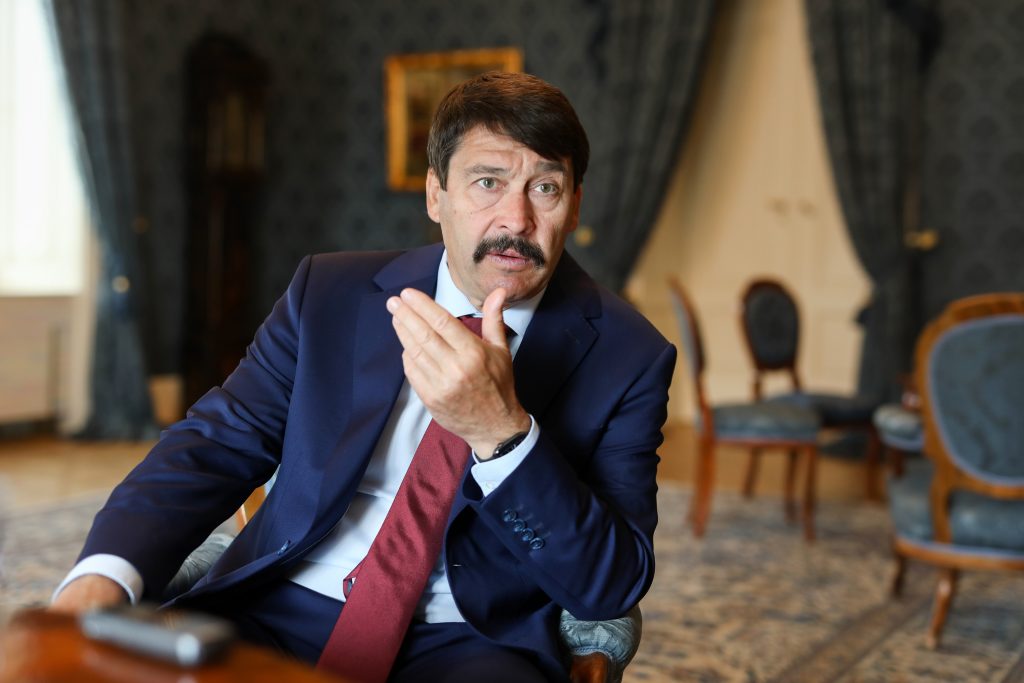
The same can be said for Lake Fertő. There used to be infrastructure, a bathing area, fishing docks, a harbor for boats, all of it dilapidated. It is a man-made area, so it is not a question of taking something away from Lake Fertő, but of building something new out of a rather poor-quality domesticated area. Now this area is being put to better use. The project is not taking place in the protected zone.
Of course, the environmental aspect is important, but at the same time, we cannot pretend that the environment that surrounds us is no longer a previously modified, built-up area.
In the case of Lake Balaton, we could also say that we should pick up the stone rubble from the shore, demolish all the buildings, dismantle the railway, and let Lake Balaton flood several kilometers of land again in the spring when there is a lot of water.
Some investments were made by our predecessors, some were done well, some were done poorly. This is a given which we have to do something about, while at the same time striving to ensure that a given investment or construction project has as little of an environmental impact as possible.
Hundreds of NGOs – prior to the formation of the new government – sent an open letter to the Prime Minister asking for the country to have an independent environmental ministry. Do you agree?
My experience is that the main thing is not what the organizational structure looks like, but whether there is a leader with a strong political will, a strong political background, a strong political commitment, a leader who can oversee the issue. Whether this role manifests itself in a government commissioner, a minister without portfolio, or a minister, I do not think there is much difference. Over the last two years I have seen a positive shift in the approach to governance.
Elements which used to be taken a little too lightly by the government are now more prominent in decision-making and implementation.
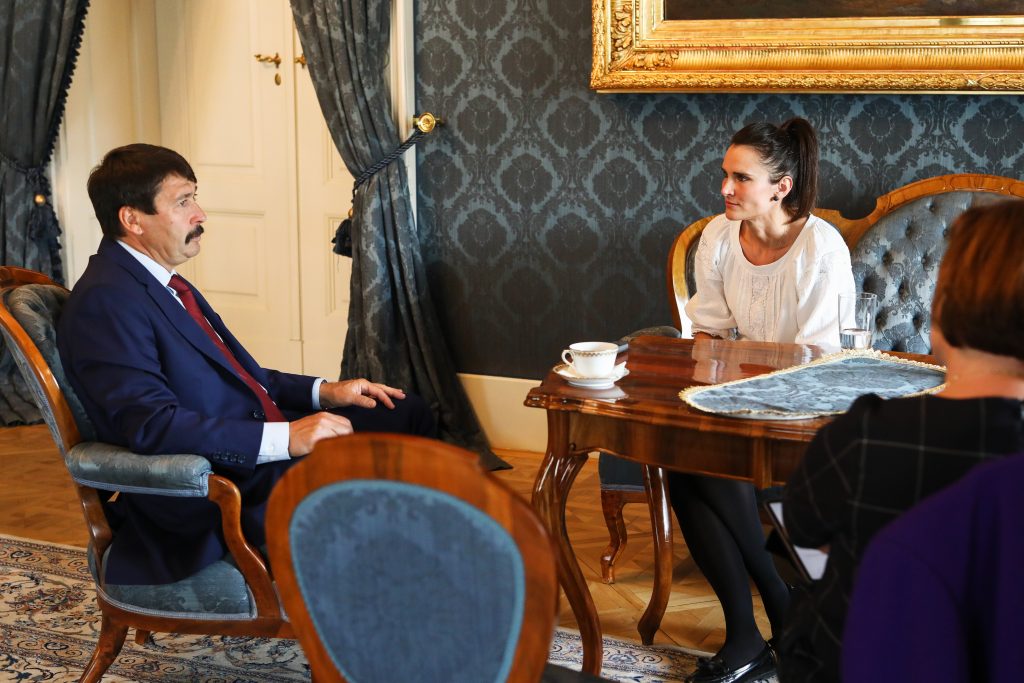
The last two years of your mandate has been dominated by the coronavirus epidemic. In Hungary, 46,000 people died in the pandemic and more than a thousand children were left orphaned or half-orphaned. You and your wife set up the István Regőczi Foundation to support these orphaned children. How can you plan the work of the foundation? It is difficult to predict the course of the epidemic, for example, and the children are often still very young and have a few years before they reach adulthood. For how long and how do you expect the funds to last?
It all depends on how successful we are in raising funds. The first year has gone well in this respect, and with the funds we have raised so far, we can continue the program. It is very important that we continue to receive support, as we already have more than a thousand children to look after every month. And we can only do this if we can sign long-term funding contracts with major sponsors. Our aim is to be able to support everyone until they are in a profession or have a degree. We cannot replace parental love, but foundational support can help children achieve their dreams.
Something you and your successor, Katalin Novák, have in common is that you both came to the presidency from the trenches of politics. What advice would you give or have given her that you wish you had known 10 years ago?
Politics is as much a craft as any other. But no one is trained for this “profession” anywhere. Everyone learns its basics at their own expense. Knowledge and experience can be passed on, but every situation and every political career is different. The presidency of the republic is a unique profession. You have staff, but no political team around you. I shared my experiences with Katalin Novák [the current president of Hungary], I told her what to watch out for, what pitfalls there can be along the way.
What are your long-term plans after this?
There are the two foundations I mentioned earlier, both of which provide work. At Regőczi, money will have to be raised every year. And at Blue Planet, we have started some big projects that I neither want to cancel nor cut in half. Both places have good, dedicated teams. The conditions are set for us to continue our work.
Translation by Tamás Vaski. Photos and Featured photo by Zita Merényi/Hungary Today